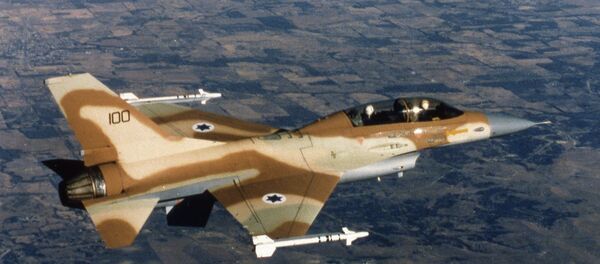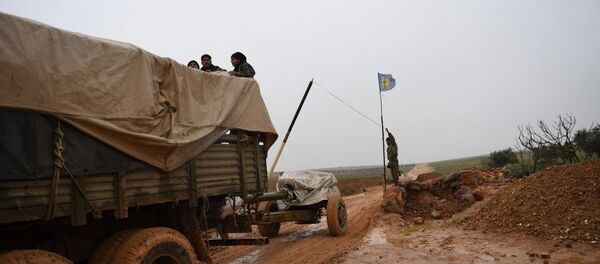The US president struck another blow to supporters of a permanent US presence in Syria on Wednesday, telling reporters that the country became a lost cause for the US "long ago," that "we don't want Syria," and that all Syria had to offer the US was "sand and death."
Questioning sentiment previously expressed by members of his cabinet, including National Security Adviser John Bolton, about US forces staying in Syria until Iran and its allies had also drawn down their alleged presence in the country, Trump suggested that he frankly didn't care what Tehran did. "Iran is pulling (its) people out of Syria, but they can frankly do whatever they want there," he said.
Reacting to the US President's remarks, Haaretz contributor Zvi Bar'el wrote that they demonstrate that the US has effectively given Iran a "free hand" in Syria.
This was particularly concerning for Israel, Bar'el warned, adding that what Tel Aviv "can understand from Trump's statement" is that it no longer has "American backing for its military operations in Syria".
"Israel," the columnist stressed, "will also be unable to count on the US to mediate between it and Russia, or press Moscow to persuade Iran to remove its forces from Syria – or at least distance them from the Israeli border. In other words, anyone fighting in Syria is doing so on his own responsibility; America will merely watch from the sidelines", Bar'el wrote.
Israel has carried out an extensive campaign of airstrikes in Syria over the last two years against what it claims is an Iranian military presence directed against Tel Aviv. Iran has denied claims that it has troops in the Arab Republic, and insisted that its presence is limited to military advisors assisting Syrian forces in their fight against terrorism.
No Free Lunches
In addition to the alleged threat to Israel's freedom of action in Syria, Bar'el argued that the US withdrawal from Syria and Turkey's ongoing conflict with Syria's Kurds actually serves Russia's long-term goal, "which is for the Assad regime to regain control over all of Syria."
Ankara, the analyst noted, is interested in the same thing, and would prefer to see a united Syria without extensive autonomy for the Kurds. Accordingly, "to protect Turkey's interests over time, Erdogan will have to change his attitude toward Assad. He'll have to grit his teeth, recognise Assad as Syria's ruler and sign military agreements with him to ensure that the Kurds won't be able to set up an autonomous region and threaten Turkey from it," Bar'el suggested.
Moscow, according to Bar'el, is likely to "ask Ankara to help rebuild Syria and return the Syrian refugees living in Turkey," follow through with the S-400 air defence system deal, and possibly even "ask Turkey to sign a defence pact, which would void the country's NATO membership of any meaning."





